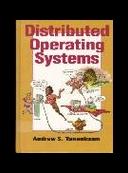Книги автора: Distributed operating systems
Книга: Distributed operating systems
4.3. PROCESSOR ALLOCATION
By definition, a distributed system consists of multiple processors. These may be organized as a collection of personal workstations, a public processor pool, or some hybrid form. In all cases, some algorithm is needed for deciding which process should be run on which machine. For the workstation model, the question is when to run a process locally and when to look for an idle workstation. For the processor pool model, a decision must be made for every new process. In this section we will study the algorithms used to determine which process is assigned to which processor. We will follow tradition and refer to this subject as "processor allocation" rather than "process allocation," although a good case can be made for the latter.
Похожие страницы
- 4.3.1. Allocation Models
- 4.3.2. Design Issues for Processor Allocation Algorithms
- 4.3.3. Implementation Issues for Processor Allocation Algorithms
- 4.3.4. Example Processor Allocation Algorithms
- 5.5.3 Contention scope and allocation domain
- 4 Processes and Processors in Distributed Systems
- Displaying Free and Used Memory with free
- 10.2 The Real-Time Operating System (RTOS)
- 1.5. DESIGN ISSUES
- 3.3. ELECTION ALGORITHMS
- 4.2. SYSTEM MODELS




